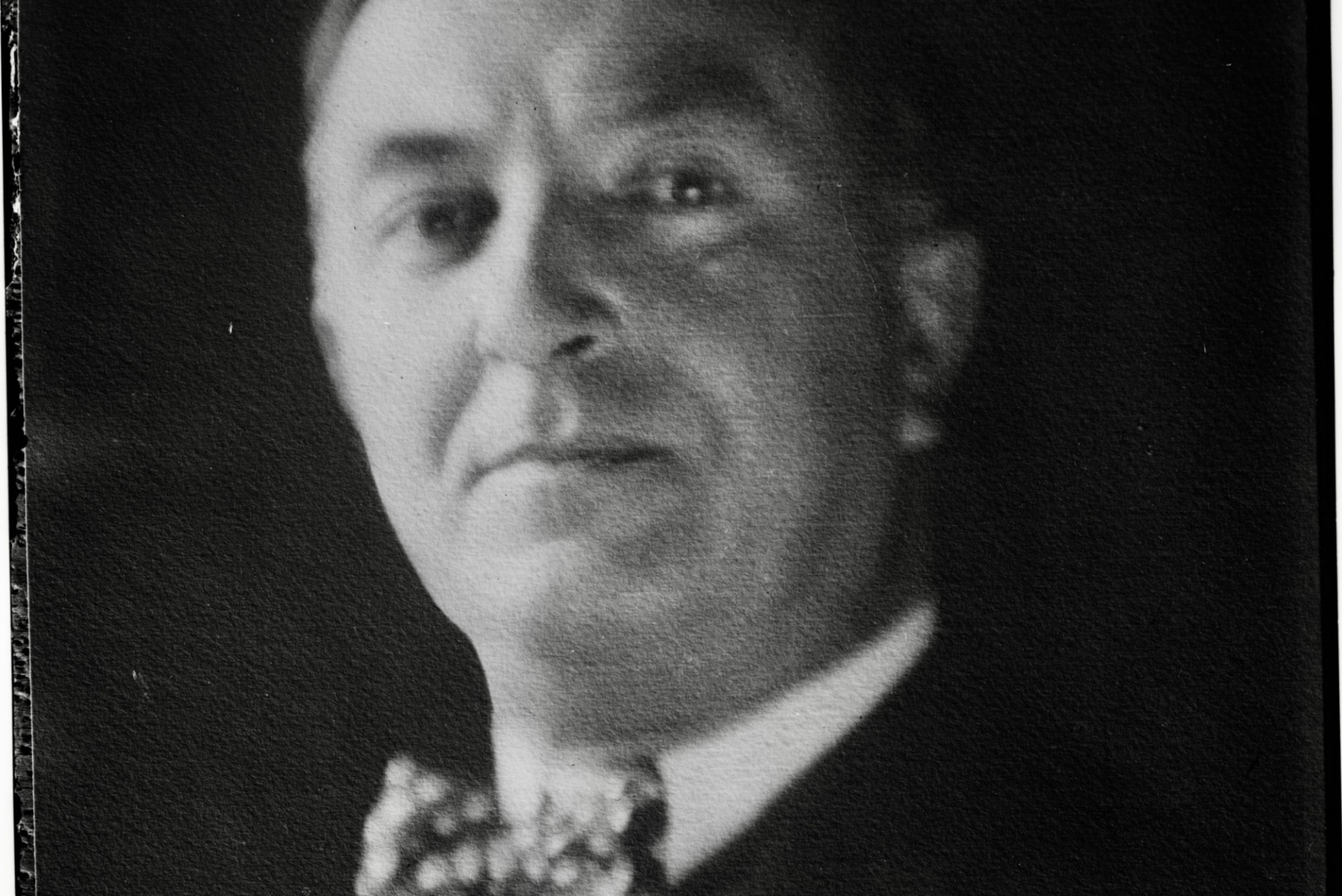Luigi Federzoni and Fascist Italy’s Visions of World Order and Political Space (1928-1938)
An interview with Matteo Giordano (MA 2021) about his MA thesis “Mediterraneità. Luigi Federzoni and Fascist Italy’s visions of world order and political space (1928-1938)” (awarded with program distinction)

What is the subject of your research?
In my thesis, I analyzed Italian fascist hierarch Luigi Federzoni’s (1878-1967) geo-strategic reasoning and foreign policy ideas during the 1930s. My goal was to understand how he envisioned Rome’s geopolitical interests and imperial ambitions in the midst of the crisis of the international liberal order.
What sparked your interest in exploring this topic?
Federzoni, a former nationalist leader and the recognized political chief of the monarchic-conservative establishment, played a very important role in the history of the regime. However, his figure has not been sufficiently taken into account in existing historiography, particularly as far as his activities in the 1930s are concerned.
Looking at Federzoni’s thinking on foreign policy during the 1930s is an interesting undertaking, because it helps to get new insight on the existence of a different strategic rationale inside the regime’s establishment, sponsored by the old ruling élites sidelined by Mussolini and his fascist cadre: one that refuted embracing “a common destiny” with Nazi Germany and a hyper-revisionist outlook, favoring instead to stick to Italy’s traditional foreign policy. All in all, I think it opens new horizons in the study of Fascist Italy’s foreign policy and international role in the “global 1930s”.
Can you describe how you conducted your research?
I began by diving into the literature on the interwar period from the perspective of the history of international relations and international political thought. The works by Adam Tooze, Mark Mazower and Or Rosenboim were very useful. I also obviously read a lot on the history of Italian foreign policy and, more in general, on the regime. The writings of R. J. B. Bosworth and Victoria de Grazia helped me a lot.
I then had to do my research in the archives. The pandemic made my job almost impossible. However, I bit the bullet and kept going. I visited several archives and libraries in Rome and one in Northern Italy. I had to work with the sources I was able to get my hands on. In particular, it was crucial to consult all the issues of the premier scholarly journal la Nuova Antologia, which Federzoni directed and carefully edited for many years.
What are the main results of this study?
Scholars in the past have argued that Federzoni’s approach to foreign affairs constituted a strange mix of Social-Darwinist ideas and a culturally-rooted paradigm derived from Giosuè Carducci’s nationalist Neo-Classicism, as well as from Alfredo Oriani’s arch-imperialist and expansionist themes. According to their reading, Federzoni’s approach to foreign affairs and imperial planning was a civilizational and somewhat “constructivist” one.
On the contrary, I try to suggest that Federzoni resembled more closely a “realist”, in the sense of Realpolitik, paradigm. First of all, Italy was presented as a responsible Power that wanted to constructively participate in the shared reorganization of Europe’s political order and in a peaceful revision of the Versailles’ settlement, nurturing an imperial and expansionist project of her own, but without breaking away from the international liberal system.
Foreign policy was conceived exclusively in terms of national interests and not of ideological affiliations. National interests, in turn, derived more from the international position of the state (its relative power and geography), rather than from domestic political characteristics, and did not, in any case, coincide with a universalist ideological creed. Indeed, at the center of Federzoni geopolitical thinking there was the idea that Italy should contribute to the system of collective security in Europe in order to then focus on a long-term colonial and imperial expansion overseas without antagonizing the major Western Powers.
Accordingly, Federzoni always held that Rome should stick to its traditional role of subsidiary Power of the British Empire, striking a general agreement with London in the Mediterranean as the regional balance of power between the two nations progressively shifted to Italy’s advantage. In Europe, Federzoni imagined the relaunch of some form of great Powers-condominium, with Italy mediating between Germany and the Western democracies. Nazi unilateral and aggressive revisionism, in turn, deeply alarmed him.
Following the outbreak of the Ethiopian crisis, fearing the consequences of Mussolini’s anti-British gamble and strategic alignment with Berlin, Federzoni grew increasingly at odds with the regime’s trajectory. Such concerns, shared by the monarchic-conservative circles, would eventually bring Federzoni to oppose Italy’s entry into the war and later to vote against the Duce on July 25, 1943.
All in all, this underlying conflict between Mussolini and the old élites on the matters of geostrategic calculations alerted me to the fundamentally unresolved and self-contradictory nature of the regime’s foreign policy, always caught between an “insurgent”, “revisionist” -Power outlook and a “status quo” - Power approach.
What makes this topic relevant to study, today?
I stick to Benedetto Croce’s insight that “every true history is contemporary history”. I am convinced that today, with the end of the Cold War, the crisis of the European integration process and the relaunch of power-politics and interstate competition, Italy is struggling to come to terms with its own historical subjectivity and articulate a coherent strategy. The country is unprepared to face the new international arena and seriously risks national disintegration. Looking at the history of its own foreign policy in a more unitary framework thus helps to reflect on these issues, focusing on structural and long-term trends.